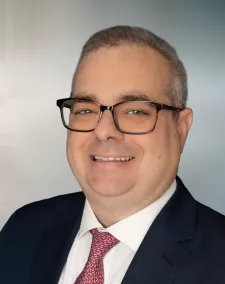
The Importance Of Reporting Childhood Sexual Abuse
In the past year, childhood sex abuse has become a part of our national conversation and generated considerable media coverage.
It seems hard to believe that last Fall, Joe Paterno began his 62nd season on the Nittany Lions coaching staff. Today, the statue of Joe Paterno outside of Beaver stadium is gone, as are all of Penn State’s wins dating back to 1998. Penn State is now working to rebuild both its football program and reputation following the criminal conviction of Jerry Sandusky and the associated fallout.
Closer to home, Charleston is still reeling from the revelations of a decade of childhood sexual abuse perpetrated by former teacher and coach Skip ReVille at some of this community’s most venerable institutions, including The Citadel and Pinewood Preparatory School. ReVille is now serving 50 years in prison for abusing 23 children, but many questions remain.
One of these questions was articulated by the top prosecutor at ReVille’s sentencing: how could this happen in a place with “every resource you can imagine”? Indeed, Charleston is fortunate to serve as the national headquarters for Darkness to Light and benefits from the therapeutic resources offered by the Dee Norton Lowcountry Children’s Center. The fact that these top-notch organizations are located here is not surprising given that Charleston was shaken some twenty years ago by revelations of another pedophile’s abusive behaviors that involved more than 40 children.
Which brings me back to our prosecutor’s question: how could a community that has lived through such events allow them to be repeated?
I recently read an article in the National Catholic Register, which reported that Father Benedict Groeschel said that teens act as seducers in some sexual abuse cases involving priests. While Father Groeschel has now apologized for this comment and the article has been removed, exposing this way of thinking is important—as is holding accountable the institutions that conceal abuse.
Despite decades of awareness, legislation and litigation, there are some in positions of authority—in our churches, schools, summer camps and Boy Scout troops—who chose to shirk their responsibility as mandatory reporters and look the other way when they suspect childhood sex abuse. Perhaps they agree with Father Groeschel that the victim is at fault. Perhaps they are more concerned with protecting the “image” or “brand” of their institution than protecting children. Regardless, such acts of concealment not only condone the continued abuse of children today but also help perpetuate such abuse against other children tomorrow.
I am honored to represent survivors of childhood sex abuse perpetrated by Roman Catholic priests and former students of ReVille and, as a father, have come to understand that simply being aware of sexual abuse is not enough to keep children safe. To that end, I take inspiration from how Skip ReVille’s decade of abuse came to an end. While mandatory reporters said nothing about ReVille’s behavior, a mother heard from her son in November 2011 that ReVille had done inappropriate things in a locker room to other young boys. Rather than do nothing, she acted. As a result, a child predator is now behind bars.
I cannot help but wonder how many children she protected.
Conversely, I cannot help but wonder how many children were harmed by ReVille as a result of the silence of others? The search for this answer is ongoing through the civil justice system.
Despite recent efforts, I worry that our community may find itself asking similar questions in the years to come. I hope that I am wrong and that mandatory reporters will fulfill their legal responsibilities and report suspected cases of childhood sex abuse. I also hope that, if I ever find myself in the same position as the Charleston mother who brought to light ReVille’s crimes, I will have the same resolve—to speak even when others are silent.
Learn more about childhood sexual abuse and neglect mandatory reporters.